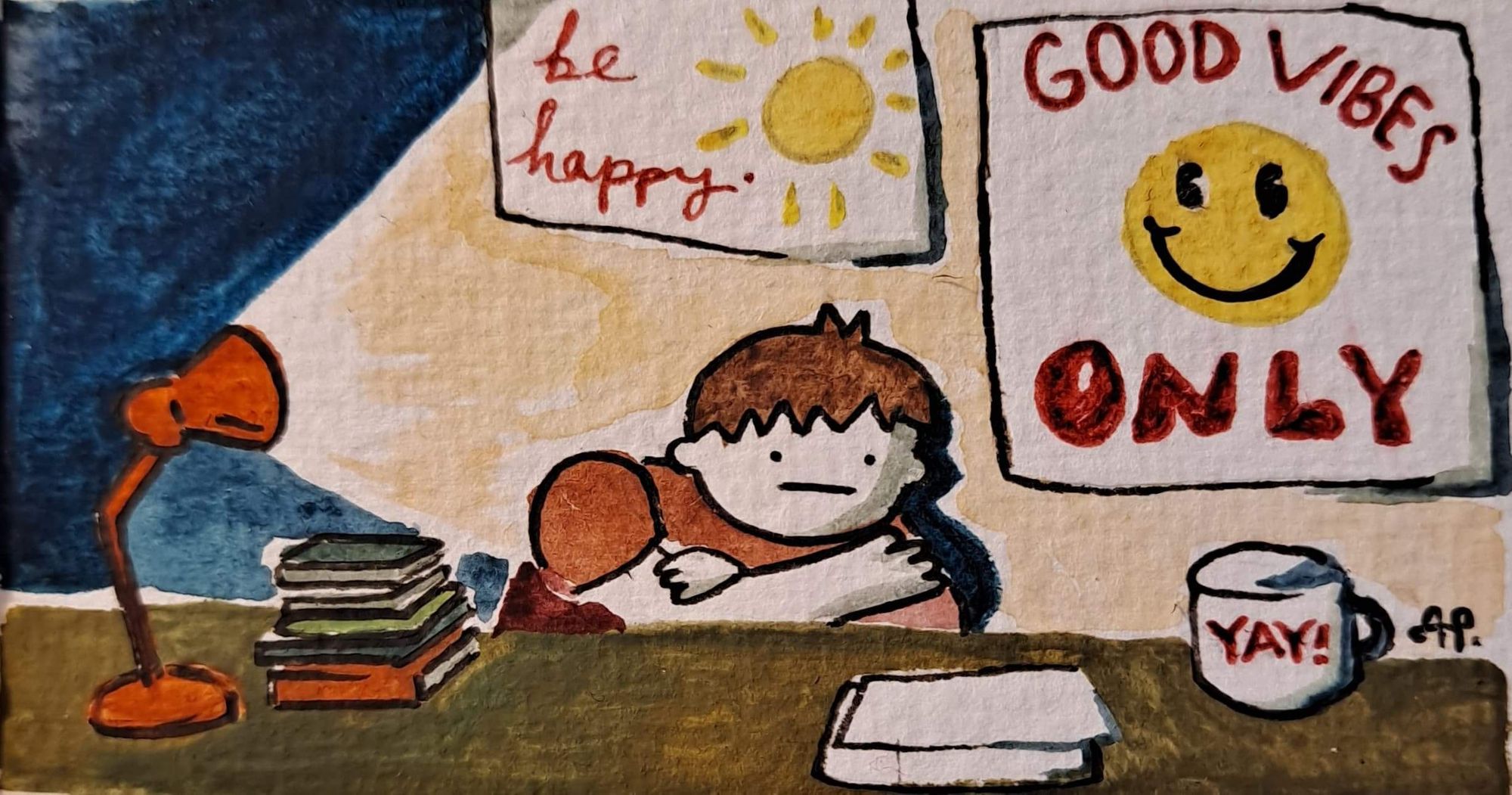By Alice Clarke, Second Year, History
The first UK lockdown felt very different to the one we are in now. Last year’s lockdown for many was characterised by sun, iced coffee, walks and hair dye. Being in lockdown in the depths of winter in January and February, there certainly are less positive aspects to cling to.
With over 120,000 people dead from Covid-19, understanding and dealing with grief and upheaval is more complicated than spreading “good vibes”, these feelings and emotions need to be processed and accepted properly.
Though it can be well-intentioned, mindless optimism needs to be replaced with a normalisation of bad emotions. Feeling these feelings in a time like this is completely natural and understandable. After a year of death and isolation, people are sure to be mentally worn down.

Important questions need to be asked about how individuals, communities, and the country as a whole, will be able to process the scale of the loss experienced. Many have suggested that from Covid-19 will come a collective trauma, something that cannot be remedied with toxic positivity.
Lockdowns have been promoted by positive people as simply ‘more free time’ to be productive, try new things, and reorganise your life.
These things can be done, but clearly the implications of national lockdowns are more complex than that. Many have lost loved ones, their jobs, their homes; any semblance of normality or even positivity seems very far removed from these circumstances.
Mindless optimism needs to be replaced with a normalisation of bad emotions
You don’t have to be productive and working on your peak performance at times like this, though it seems employers and universities are struggling to appreciate this. It is okay if you didn’t learn that new language you said you would, if you're behind on uni work, if the days feel pointless. We simply shouldn’t be expected to thrive in at times like these.
Many people are also locked down in environments that are far from ideal. Many have spent the last year alone. Many have their daily walk by hardly scenic busy roads, not the luscious countryside. It is easy for some to see lockdown with a rose tinted lens but the reality is more difficult for most people and this should be recognised.
Feelings that are natural in times of stress, change and pressure are not self-inflicted, or unfounded. We have been in and out of lockdowns for around a year now and the toll of isolation and uncertainty is measurable on people’s mental health.
Many people are also locked down in environments that are far from ideal
Though it is difficult to stay positive, it can of course, help. However, the relentless pursuit of positivity without nuance or context is only damaging and unfortunately is more commonplace than one would hope for it to be at the moment.
Sentiments like ‘it could be worse’, ‘just don’t focus on negativity’, ‘have you tried making your bed and drinking more water?’ really oversimplify the complex times we are living in and the complex emotions that emerge.
Trying to be positive and encouraging others to do the same isn't toxic in itself, however it leans into toxicity when it invalidates and minimises peoples’ very real, difficult experiences and emotions.
Bristol’s Student Health Service offering vaccines to students
Opinion | The pandemic's impact on students may still be yet to come
Suppressing negative emotions is not conducive to feeling better. They should be felt without the implication that they are preventable or extreme. An environment of toxic positivity promotes shame and pressure in struggling. In recent years, with the push for better awareness of mental health, toxic positivity feels reductive and shallow.
The ability to pull oneself up out of a slump is great but also a lucky privilege. It is not an indication of being stronger or better adjusted than others. It encourages people to keep quiet about their feelings and feel alienated when it appears everyone around you is coping or even thriving.
Trying to hold onto the good things in life, hope for the future and generally being positive is not a bad thing. It can be really helpful to get through times like these. However, the acceptance of negative emotions given we are living through a pandemic is vital, and these emotions need to be understood and lived with.
Featured Image: Epigram / Daisy Game
How have you been finding the lockdown? Let us know!








